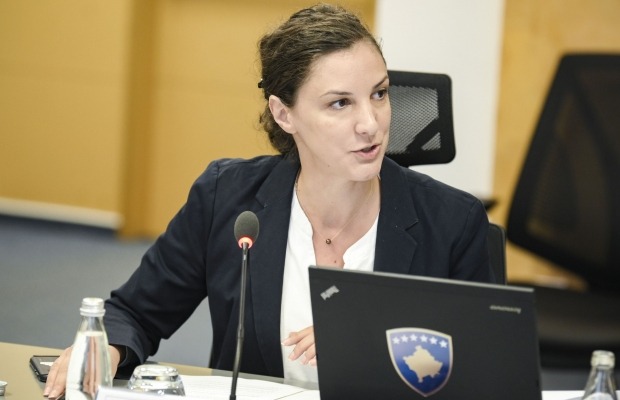Decision on emergency energy measures for public institutions and subsidizing of bills
Prishtina, 14.09.2022 – At the 96th meeting of the Government of the Republic of Kosovo, upon proposal of the Ministry of Economy, decisions were taken on obligatory energy saving measures at central and local level institutions, and publicly owned enterprises.
Concerning the global energy crisis which has aggravated the energy situation in the country and the local electricity generation, the Emergency Technical Committee, consisting of representatives from all relevant energy institutions, has recommended a series of energy savings measures to influence the reduction of electricity demand in the country.
The measures taken by the Government of Kosovo oblige all central and local public institutions, as well as all public enterprises to be rational in energy consumption, with a special focus on heating and lighting. Reducing energy consumption during the winter season is critical to cope with the crisis, especially when consumption significantly exceeds the country’s generation capacity.
Saving measures are as follows:
A. Obligatory energy saving measures in central and local level institutions, and publicly owned enterprises
1. To replace standard bulbs with LED bulbs in all central and local level institutions as well as in publicly owned enterprises.
2. To turn heating off in those offices or facilities where there is no physical presence, as well as in all hallways.
3. To turn off water heating in facilities of public institutions (stop the use of boilers), except in institutions such as hospitals and similar entities, where hot water is necessary.
4. In cases where hot water is necessary, central and local level institutions, as well as publicly owned enterprises are obliged to maintain and clean/replace water heaters.
5. Turn off electrical devices (information technology devices, etc.), in cases where they are not used for a period longer than 10 minutes.
6. Prohibit the use of air conditioners, except in cases where there are no other heating alternatives.
7. Prohibit the use of ohmic heaters (electrical heaters).
8. Stop the use of lighting in interior spaces and offices of public facilities during the period when there is sufficient natural light.
9. Turn off any billboard or advertising space that uses electricity.
10. Turn off decorative lighting in all buildings.
11. Where possible, install intelligent systems for electricity consumption management (such as sensor lights, thermostatic valves, etc.).
12. Facilities heated through central heating systems to make the heating potential maximally operational in winter, by taking steps to maintain and clean the system.
13. Repair water leaks to reduce electricity consumption.
14. Chief Administrative Officer of the central and local level institution and Chief Administrative Officer of the publicly owned enterprise must appoint a person responsible for energy savings in the institution.
15. The designated responsible person referred to in point 14 of this Decision shall be responsible:
To turn off all lights and electrical devices after 16:00;
15.2. Turn off all lighting which is not necessary for the physical security of the facility at night;
15.3. To ensure that during working hours from 08:00 to 16:00, space heating temperature is not more than 19 degrees;
15.4. To ensure that after 16:00 until the next day at 07:00, the heating temperature is reduced to the minimum (when heating is done with electricity), where it is possible;
15.5. To ensure that all windows of the facility are closed.
B. Public lighting obligatory measures
1. Turn off all public lighting during the day, when there is sufficient natural light.
2. Turn off all decorative lighting in public spaces.
3. Minimize (turn off every third lamp) public lighting on highways and regional roads to the extent necessary, as long as it does not pose a risk to the safety of citizens and normal operation of traffic.
4. Turn off lighting in spaces of historical monuments, lapidaries and museums.

